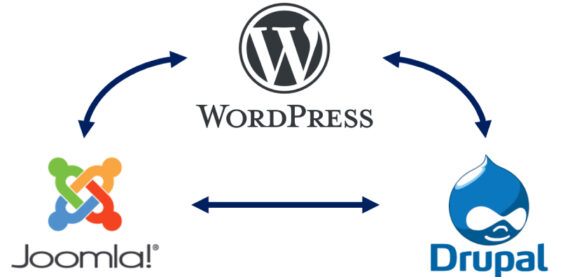1.Scope the ranking drop’s impact
The search queries and pages that are impacted by a ranking drop say many about the underlying issue.
Use your web analytics data, Google Search Console data, rank tracking applicationand Bing Webmaster Tools data to identify what the scope of the ranking drop’s impact is so we can able diagnose the issues.
List all search queries that are showing a ranking drop, and include for each one:
- What cluster the query belonged to
- Their old ranking (to establish a baseline)
- Their new ranking
- The difference
- The URL that was ranking
- The content type that was ranking
- Whether the page is index-able
- Any comments that may be useful (for instance, the date when you’ve made changes to this page)
Often just doing this, lays out a pattern. It could be that the ranking drop only impacted particular sections of your website.
2.Recent website changes
Ranking drops are often creating by large changes to a website. When you have migrated a bunch of pages, rolled out a (responsive) rebuild, or reworked a lot of content you’ll see big fluctuations in your rankings. This is natural, and should only worry you as your rankings don’t come back to their earlier state.
Check your SEO monitoring tool
If your rankings are essential to your business, then it’s a no-brainer to detect your website for on-page SEO changes. We distinguish between technical changes and content changes — technical changes often affect the total website, whereas content changes often only affect the pages directly affected.
Technical changes
Double-check that search engines are still crawling and indexing your website in a similar way as before.
Internal link structure changes
Changes to the internal link structure of the website can have a large impact on your pages’ SEO performance, especially if we’re talking changes to links on the homepage, on other authoritative pages, and in the sidebar or footer.
Especially when a rebuild has been rolled out, you often see a big shift in the internal link structure so be mindful of that.
3.Technical issues
If Google’s been having technical issues crawling and indexing your site, this is very likely to impact your top rankings.
Crawl anomalies
Crawl anomalies are preventing Google from collecting the information they requested. If they fail in this step, they won’t be able to index and rank your content:
Blocking Google-bot
More often than you’d think the main reason why rankings drop is that a trigger happy system administrator distinct to block all traffic from bots, or all traffic originating from the United States in the firewall.
Keep in mind that nearly all crawl activity performed by Google is done from the United States, so you’d be actively preventing Google from crawling your site, which will rapidly lead to your pages being DE indexed.
4.Google algorithm update
Google updates are often the main reason behind ranking fluctuations. According to Search Engine Land, Google made 3.200 changes to their algorithms in 2018. We think that number has only been filled out since then.
Some changes are few and barely noticeable; other changes are huge and make or break businesses.
Examine if your ranking drop coincides with a Google update. While Google is rarely open about few updates, SEO specialists across the globe keep a watchful eye and have built tools that find large changes in rankings and try to tie them to updates.
To monitor ranking volatility over time, check out the tools below:
Keep in mind that ranking drops due to Google algorithm updates don’t always happen instantly. Oftentimes, you’ll see your rankings gradually slipping away. This makes sense, as Google has to re-estimate and reprocess immense amounts of data sets.
Google filters like Penguin or Panda can work the same way, leading to rankings drop over the course of several weeks.
5.Google SERP updates
Not every Google updates about onlytheir algorithm. They can also swap their search engine result pages (SERP) layout by adding other elements which push down your snippet or attract more attention than your snippet.
Keep in mind that rank tracker treats featured snippets straight. When a featured snippet appears for a query, some may not even take it into account whendecribe rankings while others will.
6.Disavowed valuable backlinks.
People disavow spammy backlinks that they don’t want to be associated with, but in 99% of the cases, you won’t have to in order to head off getting a penalty.
While spammy backlinks don’t really participate anything, they also don’t hurt unless there’s a clear malicious intent (such as for example consistently buying 100,000 blog comments every month).
What’s more, disavowing those spammy backlinks may even have a rejection impact on your SEO performance, so be careful with this.
7.Google Manual Action.
When rankings drop, people are again and again afraid that they’ve received a Google penalty. In many of the cases they haven’t that’s why this section is placed so far down in this article.
If you’ve gone through all of the other checks and you haven’t found the main reason for your ranking drop yet, do check whether you may have received a manual action.
8. Website hacked.
Unfortunately, site hacking is a truly active line of business. Once they are “inside,” hackers often take over websites with malicious code and spammy content and links. This is very unhealthy for your rankings, so it’s important to rule out that you were hacked.
It’s actually not likely your website was hacked, but if it has been, you want to know about it ASAP so that you can take measures to regain control of your website and restore it to its native condition.
Google scans websites for dangerous code and activity. If they find your website’s been hacked, they willtell you about this through Google Search Console.
9.Change in search intent and behaviour
Sometimes Google may decide to change its idea on the intent of a search query, and thereby also swap the websites they deem relevant.
Take for example the query Birds of Prey — this could mention to the movie that had trouble ranking (and was later named “Birds of Prey (and the Fantabulous Emancipation of One Harley Quinn”), the bird species. We may not realize this, but for a many queries the query intent changes over time.
Mainly during strange times, like the COVID-19 pandemic. Search behavior quickly changed, which must — directly or indirectly — have impacted rankings. Some products and services were no extend needed, and for others there’s an extreme demand.
10. Competitors making moves.
Your competition is regularly making moves, trying to overtake you and thereby pushing your listings down in the search results.
While it’s rare that the competition takes you over for many search queries in a small amount of time, competition can definitely play a role in your ranking drop.
At that same time, your competition stepped up their game and won some of your present snippets. Together, this has a large impact and your website’s rankings drop across the board. Investigate and locate who you lost you rankings to.After you’ve done so, try to realize out how they managed to beat you.









































